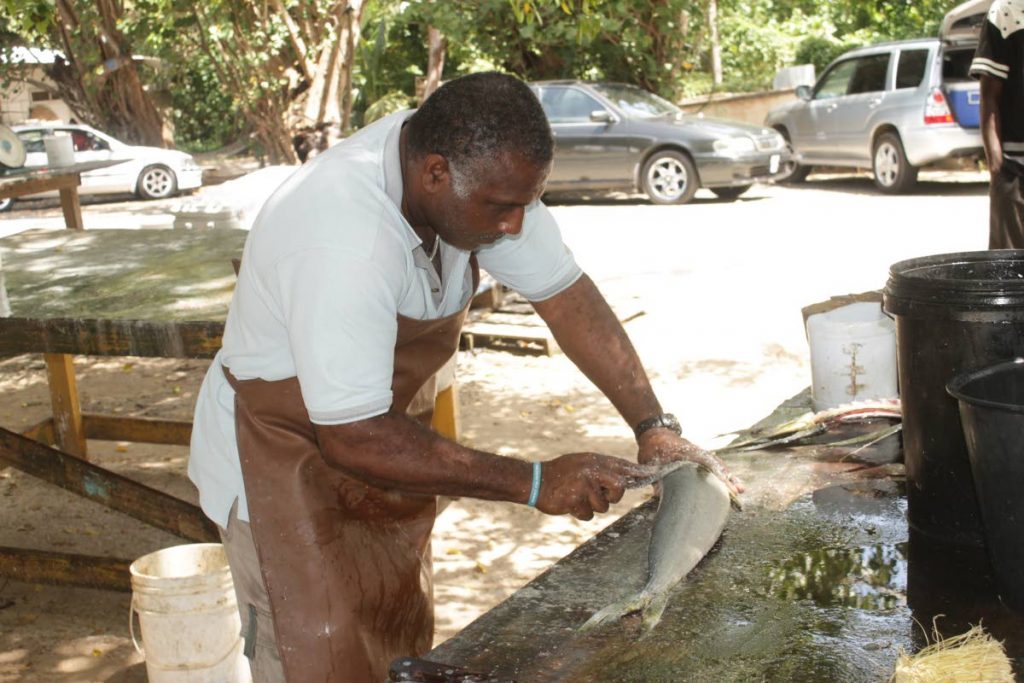Fisherfolk call for “forceful” THA role on fisheries legislation

Tobago needs more “forceful and clear” representation on issues affecting the environment, fisherfolk and protection of marine and aquatic life.
This was the call by fisherfolk and stakeholders in the fisheries sector who want the Tobago House of Assembly (THA) to have an active role in discussions on proposals in the Draft Fisheries Management Bill.
Agreeing that revised legislation was needed to manage the sector at a consultation on the draft bill last Thursday at the Division of Environment’s conference room at Shaw Park, stakeholders said Tobago must make itself heard on matters governing the management and sustainable development of the sector.
Stakeholder Samuel Mac called for the THA to have a significant role in the draft and completion of the bill.
“All we have set out to achieve will only bear some fruit if the Assembly itself plays a more important part in this bill. There must be more input from the Assembly…,” said Mac.
“One of the things that is very troubling on the island is the fact of poaching, this will affect fish harvesting and will create conflict between the fishermen and the poachers, especially Venezuelans. When we are doing this law, if the Assembly doesn’t have a greater say so we can encapsulate some of Tobago’s greater issues and make a reality of what we are trying to do, then we will fall short of the goal,” he argued.
Mac also suggested creation of a law to place a limit on the weight and size of fishes harvested to encourage sustainable harvesting.
Fitzroy Williams, a representative of the South West Fishing Association, asked about the research used to determine the severity of the depleting fish catch.
“There are so many reasons I can think about that can cause this. One I can think about is the seismic research done in our waters; we also have the Sargassum seaweed, which I believe is causing a main issue with the depleting of the fish. I want to know is anything being done or any research happening to help out the poor Tobago fisherman with this issue.” he said
Elizabeth Mohammed, Director of Fisheries, told Williams that data was being collected in Trinidad on a regular basis at the various landing sites and that data was also collected regionally under the Caribbean Regional Fisheries Mechanism on depleting fish catch.
Mohammed said there was no consideration for Sargassum seaweed assessment, but that various projects were being implemented “to help us better understand the impact of some of these other influences besides (over) fishing.”
She noted a “Climate Programme for Climate Reliance,” which she said would be linking with other agencies, including CARICOM, to try and model the effects of climate change on fisheries.
Another member of the South-West Fishing Association, said Tobago fishermen were being sidelined when it came to development projects on the island. He cited that case of a planned sewerage plant at the Pigeon Point Heritage Park which he said was affecting fishermen in that area as the plant was to be constructed in the same location where fishermen docked their boats.
He said the THA needed to seriously consider the concerns of Tobago fishermen before any discussions on legislation could be succsseful.
Patricia Turpin of Environment Tobago questioned the power of the Trinidad and Tobago Fisheries Advisory board (in the bill) in enforcing the laws.
“This bill reminds me of a corporation, so Trinidad and Tobago fisheries will become a business, it will have a board and a fund, will Tobago have the same model?
“If it has a board, is the board responsible for putting teeth onto this bill, because when it comes to the fines and the pollution of the ocean, who is taking care of that?” Turpin asked.
In response, Mohammed said the board was advisory in nature, “it’s not enforcing anything.
“It’s advising our management plans, international agreement and best management practices.
“A Fisheries Inspectorate will be established in Trinidad and another in Tobago to enforce the legislation along with authority offices such as the Trinidad Coast Guard, Trinidad and Tobago Police service, director and officers of Maritime services,” she said.

Comments
"Fisherfolk call for “forceful” THA role on fisheries legislation"